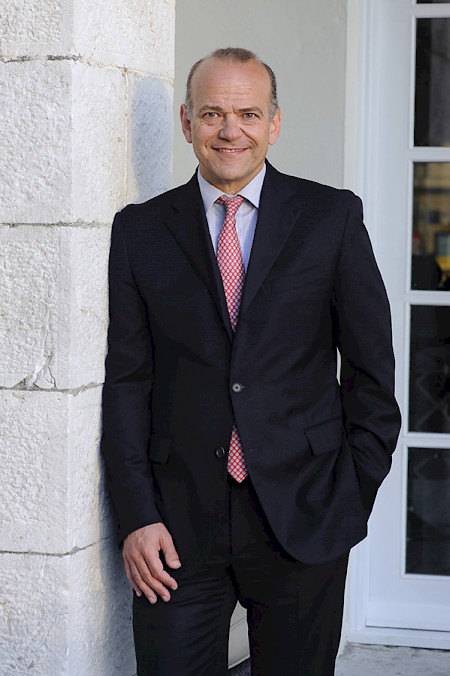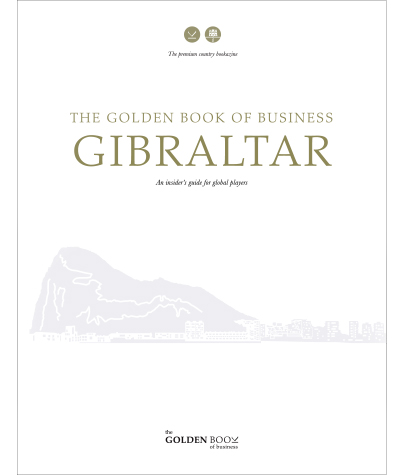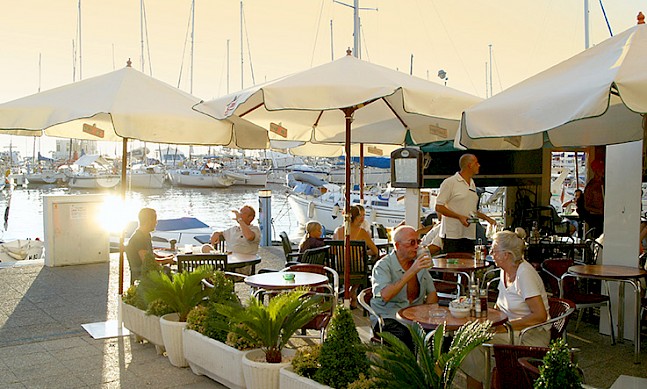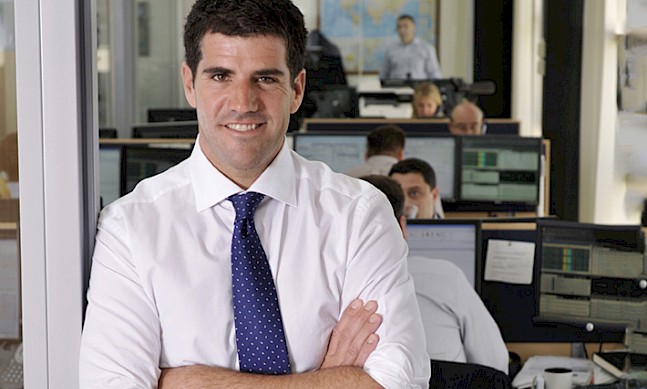
Hailing from a family of lawyers, Albert Isola was senior partner of law firm Isola & Isola, later ISOLAS, for 28 years, assisting the government of Gibraltar and the Finance Centre on its promotion of the financial services sector to various European jurisdictions as well as acting for a number of international firms. All of this stood him in good stead for the role of minister for financial services and gaming, which he assumed in 2013. He spoke to The Report Company about the similarities between the sectors of gaming and financial services, and the emphasis the government places on them.
The Report Company: What was the thinking behind bringing together financial services and gaming in your portfolio?
Albert Isola: Financial services and gaming are two of the key areas of the private sector, and there is a relationship between them in terms of our philosophy towards both of them. We seek to attract quality operators, regulating business as well as we possibly can, and both preserving and protecting the reputation that we enjoy. Consequently, there is an enormous synergy between the two sectors in terms of them being different facets of the service industry which Gibraltar relies upon for its economic growth.
This year we’ve introduced one of our new products which is in insurance-linked securities, and the very first of those is actually one of our own gaming companies, Lottoland. A lot of the work the financial services do is with the gaming companies in Gibraltar. To be able to drive interaction with both of those groups, government works very closely with the private sector in raising the profile of the jurisdiction, stressing internationally the importance of regulation, of reputation and of compliance. To have therefore one ministry where the bulk of the private sector is parked I think makes enormous sense.
TRC: What is the government’s reaction to Spain’s approach to the European Commission to designate Gibraltar as a tax haven?
AI: I think it will come as no surprise to anyone that Spain takes a view that we’re a tax haven. Thankfully, there are very few in the European Union who agree.
If you define what a tax haven is, it’s a centre where there is opaqueness, where you can’t have visibility and see-through corporate structures, where there is a refusal to exchange information with other jurisdiction and tax authorities and where there is a protection of the identity of the individual above all else. That really is what a tax haven is.
Gibraltar couldn’t be further from that. Gibraltar has entered into the equivalent of 130 tax information exchange agreements through the different mechanisms that we currently have in place which is the multilateral convention, the EU directive, and bilateral tax information exchange agreements. We’ve also signed up to FATCA with the UK and the United States. Last October, the chief minister signed the Berlin Accord, which is the common reporting standard of automatic and spontaneous information exchange with 55 countries in the first phase. We are one of the early adopters and we always have been. There are a further 38 countries going into phase two in 2018. So we will with effect from 1st January 2017 have automatic and spontaneous exchange of information with some 60-odd countries.
When you put all of those things together and then you test them against what the Spanish authorities say that we are, it’s obvious to the most independent objective view that we are most certainly not one of those things that we were 10 odd years ago, because we were, let’s be serious. The steps that we have taken deliberately to commit to international standards of compliance and transparency as well as being 100 percent EU compliant remove the ability of any legitimate jurisdiction to say that. Of course, they are the only ones that do, and that’s no surprise because there’s politics involved.
We’ve made money laundering a predicate offence. We’ve done anything and everything that anybody has felt is right and that we should do to ensure that we are totally compliant. If you then look at the OECD phase two report which they did in Gibraltar last year, of the ten measures they have, we were found to be 100 percent compliant on seven, and on three we were found to be largely compliant, with an overall ranking of largely compliant. This puts us in the same bracket as the United Kingdom and Germany. I think that speaks volumes for the progress that we have made and belittles any sort of suggestion that we are a tax haven.
TRC: What has been the government’s strategy for setting up data centres?
AI: What drove our agenda for technology was the gaming sector. They are at the cutting edge of technology and e-business and consequently one of their prime requirements was connectivity and data centres. We now have three different operators providing fabulous services with the resilience that they need and the reliability that they need. Every single business today has a high degree of dependence on e-commerce and e-business, and we’re very well-placed to be able to deal with these concerns and there are today more data centres opening and not less.
TRC: Are there sufficient highly-skilled human resources in Gibraltar to meet the needs of these high-tech sectors?
AI: Gibraltar residents in unemployment today stand at 190, so that’s 190 too many but it’s a pretty good showing. We don’t issue quotas; we don’t issue demands on the private sector as to what they have to have. The gaming sector for example has got very diverse nationalities. You’ve got people that can communicate in all sorts of different languages which aren’t available in the local market. We give work permits very efficiently to the gaming sector because we fully appreciate that the standards and the skills that they require are often not available in Gibraltar. We don’t have a ban on foreign workers; we encourage them.
“I think it will come as no surprise to anyone that Spain takes a view that we’re a tax haven. Thankfully, there are very few in the European Union who agree”Tweet This
TRC: What opportunities are there for future growth for financial services given the recent changes in EU regulations?
AI: We comply with every single EU legislative change in financial services. It’s quite a challenge in terms of transposing the volume of directives that are coming through, but because we do passport our services throughout Europe, it’s critical that we are 100 percent up to date. This also gives us an opportunity. We are a small jurisdiction, we are nimble, we can move quickly. Being fleet of foot is a huge advantage but it doesn’t happen by accident. It happens by design.
We have agreed to invest significantly in the Financial Services Commission to enable them to bring in very much more expertise. The feedback that I get from operators in Gibraltar is that it’s a breath of fresh air to work with regulators who understand the business and who take a practical and pragmatic approach to the work they’re going to do.
We are certainly going to keep the bar high, but that we should be able to engage with licensees on a sensible practical system of regulation is at the forefront of what we’re trying to do. We don’t see why it should take the length of time that it does in other jurisdictions to get a license when it can be done quicker without compromising on the standards, and that is an advantage.
Regulation for Gibraltar is a very positive thing. We are totally in favour of it, because we believe the regulation is the filter to ensure that we get quality operators coming through our door and working from Gibraltar as a base. We are not scared by the amount of regulation coming through financial services.
Building on the back of an effective and practical regulator, we’ve been immensely successful in the motor insurance market, for example. Seventeen percent of the UK market is written in Gibraltar. What we want to do now is see how we can diversify our insurance base to be equally successful in other areas of insurance, so we are looking at insurance-linked securities, we’re looking at Part VII runoff insurance business, we’re looking at reinsurance, we’re looking at general lines of insurance. We have the critical mass, the knowledge and experience to develop it further.
We’re working similarly hard with the fund sector and the asset management division of our financial services grouping to see how we can further develop there, with quality, regulation and reputation as the key strands of everything we do in that sector.
TRC: Where do you see potential areas of interest in financial services?
AI: If you look at the effect and the impact of the AIFMD directive, what that seeks to do is to draw a line around Europe and say if you want to market your funds within the European Union, you have to have either the fund itself set up in the European Union or indeed the administrator or the person marketing it. AIFMD gives those that are outside the European Union and would like to be in the opportunity to set up their fund in Gibraltar and market it throughout the European Union.
We’ve been doing this for some time now with Switzerland, where we’ve been offering Swiss managers the opportunity to parallel into the European Union through Gibraltar by having a bricks and mortar presence in Gibraltar and we believe the same can be done with Asia. I’ve been in this job for two years and shortly will carry out my fourth visit to Hong Kong to engage with the very growing interest that there is in Gibraltar.
TRC: How much QROPS business are you seeing?
AI: We are one of the larger QROPS centres around and that has grown dramatically in the past three years. It’s an area that we are keen to grow. We are also looking at occupational schemes. Other jurisdictions have been hugely successful; we’re relatively new to the market, and we’re keen to ensure that we do this properly.
TRC: How important are events such as Gibraltar Day in marketing the jurisdiction?
AI: One of the first steps we took when elected in 2011 was to recruit three senior executives in each of the different disciplines to support the new initiative that we wanted to put across to market. The fundamental difference between this government and the previous government has been a total commitment to raising the profile of the jurisdiction generally and in the specific market areas that we wish to expand in.
The City of London has always been our key market for financial services, together with Switzerland, so in the past we’ve done Gibraltar Day in Geneva and London. We think these things work extremely well, but what we’ve done is take them a little bit further. We now go to Bermuda, Zurich, and Hong Kong, and in all of these areas the message that we’re sending is that we have EU access. If you want to have EU access, think of Gibraltar as an option.
Part of this process is about getting people to understand that there is a jurisdiction called Gibraltar that does engage in financial services, that is in the European Union, and where you can passport those services through. Everyone we meet that learns what Gibraltar is and what it can do is always impressed by our desire and our ability to do these things.
TRC: What impact has the establishment of the stock exchange had on Gibraltar?
AI: It was a weakness not to have it. Now, it is a very big plus to be able to go and say to people that if they wish to list in Gibraltar, they can. I think it’s a wonderful asset for Gibraltar and I’m delighted that they’ve done it.
TRC: How does Gibraltar distinguish itself from other gaming jurisdictions?
AI: Our philosophy for 20 years has been that there are three crucially important factors that we will look at before we license somebody in Gibraltar. Operators must have a real presence in Gibraltar. As a result, we have over 3,000 people employed in the gaming sector. Companies as prominent as Bet365 have their entire digital business here in Gibraltar. Other jurisdictions have taken a different view. We’ve got less than 30 B2C gaming companies in Gibraltar. Other jurisdictions have got hundreds, but we’ve got very many more people employed because they are real businesses with a real presence.
It’s good for operators to be based in Gibraltar because we’ve got a cracking reputation as a seriously regulated jurisdiction which cares about doing things properly, so more and more want to come here. That’s meant that we have had to be fairly strict in our process of licensing. We have turned away many more than we have allowed in, but that is the way that we can preserve the market.
TRC: Is there physical room for further expansion of either the gaming or the financial services industry?
AI: Office space has been an issue for us and I’m delighted that that issue is being deal with through developments like Midtown and WTC and a few others that will be kicking off in the next six months. There are some operators that we would like to attract to Gibraltar and I’m sure that we will succeed in attracting them here.
TRC: How would you appraise the gaming sector in Gibraltar today?
AI: We’re at the stage now where Gibraltar has become a centre of excellence in gaming and the leading online gaming jurisdiction in the world.
“It’s good for operators to be based in Gibraltar because we’ve got a cracking reputation as a seriously regulated jurisdiction which cares about doing things properly”Tweet This









